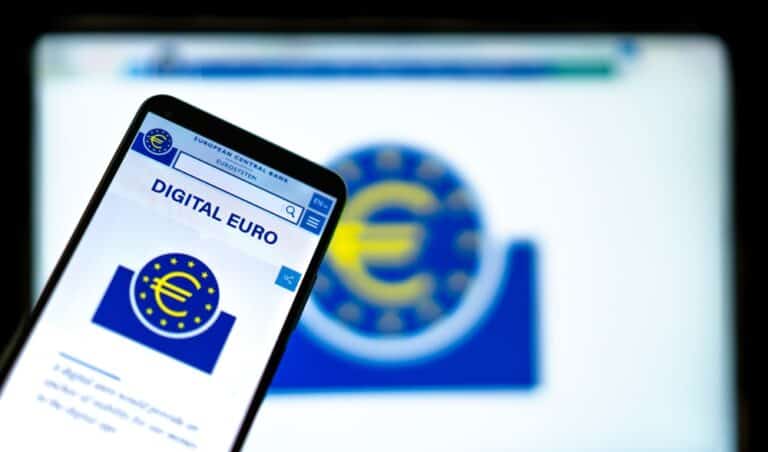On Friday, EU ministers reached an agreement on the next steps for the rollout of a digital euro. The electronic currency is intended to be an alternative to the dominant American payment systems of Visa and Mastercard. The ECB hopes to have the legislation ready by June.
The ECB expects to have the legislation ready by June. After that, the bank will need another two and a half to three years to actually launch the digital euro. This means that a European digital currency would not be available until around 2028.
Several EU countries have national digital payment systems, but no system is accepted in all 27 member states. The new currency could resolve this fragmentation.
Reduced dependence on America
The discussion about a digital euro has gained momentum this year. Europe aims to reduce its dependence on other countries in critical areas, including energy, finance, and defense. The ECB presents the digital euro as a way to reduce Europe’s reliance on American credit card systems and as a response to global stablecoin initiatives linked to the US dollar.
The electronic currency works like a digital wallet with the support of the European Central Bank. Despite these advantages, the ECB has not yet received legal approval. Members of Parliament and bankers have expressed concerns that the project could erode bank funds, become too expensive, or restrict privacy.
Ministers get a say
During the meeting in Copenhagen, EU ministers reached a compromise with ECB President Christine Lagarde and European Commissioner Valdis Dombrovskis. The agreement gives ministers a say in the issuance of a digital currency and the maximum amount that residents can hold.
“The compromise that we reached is that before the ECB makes a final decision in relation to issuance…there would be an opportunity for a discussion in the Council of Ministers,” explains Paschal Donohoe, chair of the ministerial meetings.
The parties also reached agreement on the procedure for setting ownership limits. A participant in the meeting told Reuters that the ECB will submit a proposed ownership limit for approval by the European Council of Finance Ministers.
“The digital Europe is not just a means of payment, it is also a political statement concerning the sovereignty of Europe and its capacity to handle payment, including on a cross-border basis, with a European infrastructure and solution,” Lagarde said during the press conference.
Tip: European Central Bank to launch a digital euro prototype
